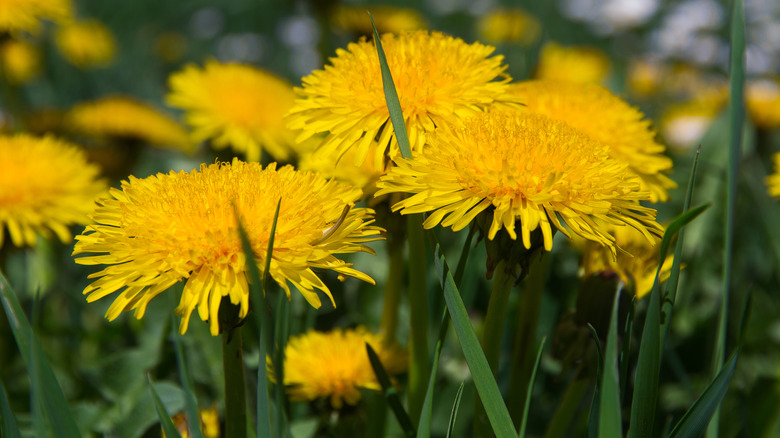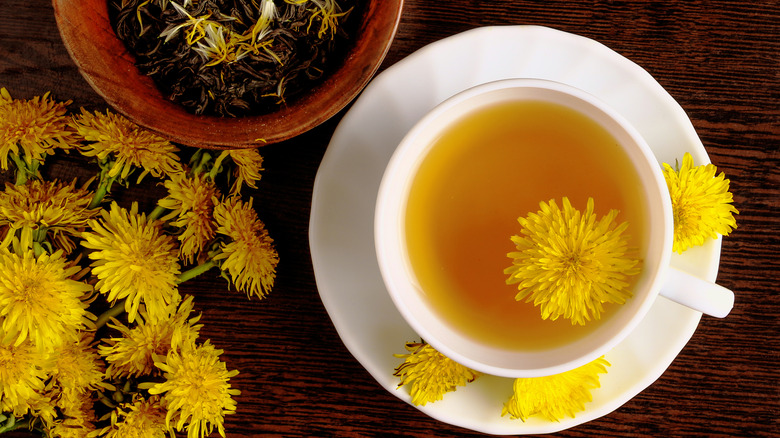Health Benefits Of Dandelions You Never Expected
Every summer, lawns across America are dotted with little yellow bursts of happiness known commonly as dandelions. And while some people view these golden blossoms as weeds, others have found uses for them in both the medicine cabinet and the kitchen. The National Institute of Health says that dandelions have been used throughout North America and Europe for generations. Serving as both a food source and basic medicine, every part of the dandelion has a purpose.
Michigan State University suggests several ways to eat dandelions. Older plants have a more bitter taste, so try to pick young ones. Then add the greens to a salad or sauté them after boiling them for about five minutes. Other options include adding dandelion petals to baked goods and burgers, or making fritters with whole flower heads.
Of course most people aren't used to eating flowers — and some might ask why you would want to. In the case of dandelions, the answer lies in micronutrients and vitamins. According to Self Magazine's website, Nutrition Data, dandelions are high in vitamins C, K, and A. They also offer smaller amounts of various B vitamins and folate in addition to vitamin E. The greens — otherwise known as the leaves — are high in iron, potassium, calcium, and magnesium.
Sorting flower fiction from fact
Nutrients aren't a dandelion's only benefit. A 2015 study published in the Journal of Ethnopharmacology found that mice with artificially induced lung inflammation improved after they were fed dandelion. The effect hasn't been tested on humans yet, but the mouse study shows promise.
It's important to note that dandelion's effects on inflammation in humans isn't the only thing that still needs testing. The National Institute of Health states that there is no scientific evidence to support many of the claims that surround dandelions. Many sites on natural medicine claim that the flower can help curb infection and settle stomach problems. Neither claim has been proven, save for the effect that a compound in dandelion root has on human gut health.
In 2017 researchers published an article in Gut, a scientific journal focused on gastroenterology and hepatology. The study found that inulin, a soluble plant fiber, had a markedly positive impact on human gut health. Inulin is found, among other places, in dandelion roots. This has since led to an increase in the availability of dandelion root tea and supplements. The National Institute of Health advises against the supplements, as there is no evidence dandelion is safe in high doses. The amount taken in a tea or recipe, however, is usually fine so long as a person is not allergic.
Dandelions are beautiful hallmarks of warmer weather. More than that, they can be a healthy part of a home-sourced diet. If you plan to pick your own, just make sure you're picking them from a place without herbicide or pesticide and that you wash them thoroughly.


